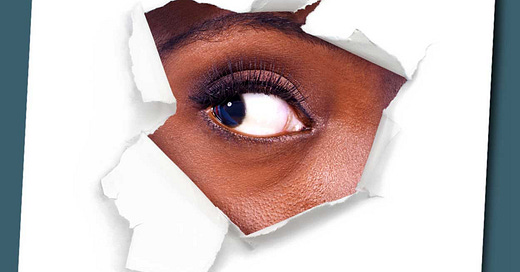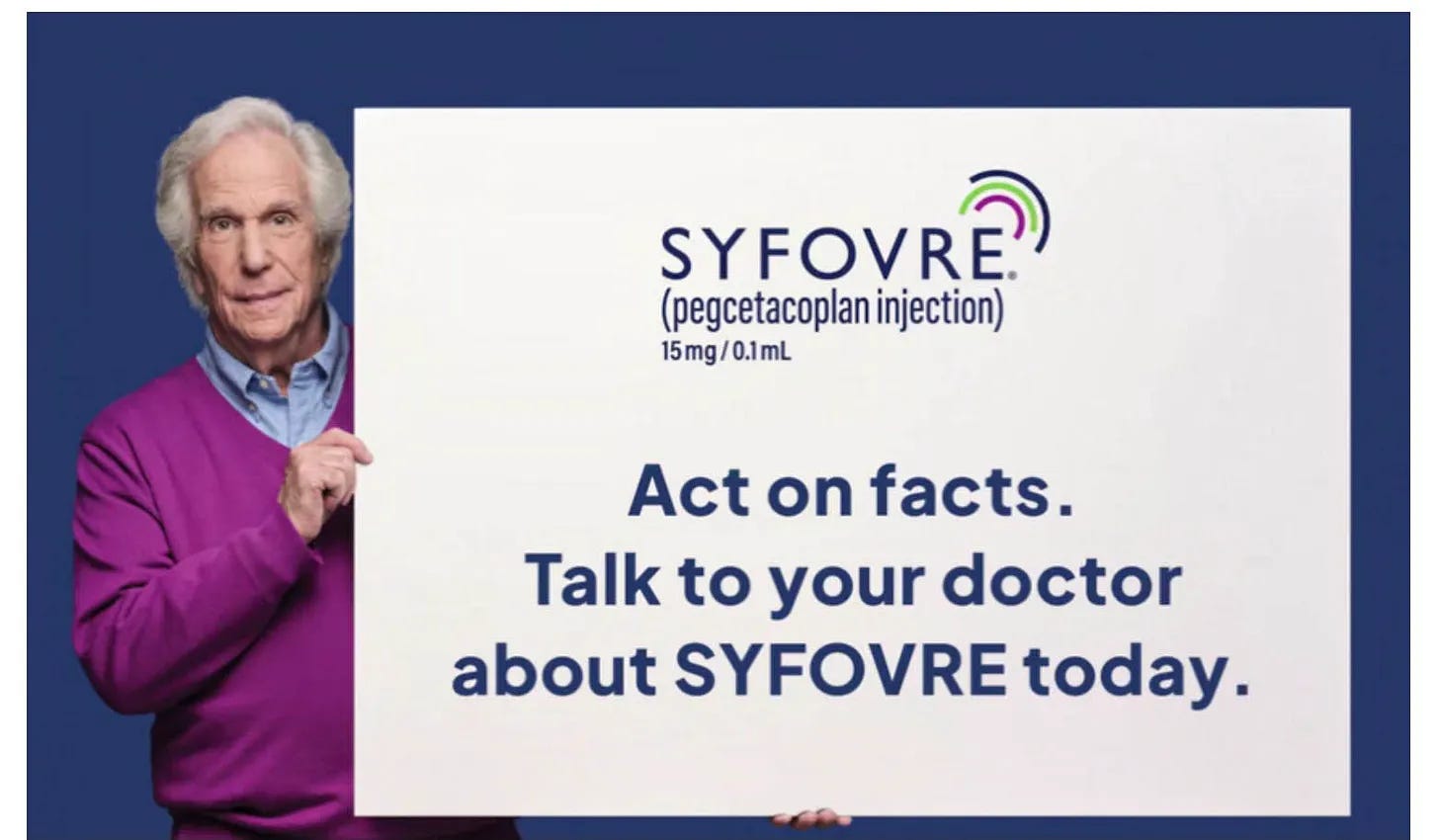Lydia Green was once a medical advertising writer and a drug industry insider. She says she “spent over 30 years participating in strategies that used misleading science to sell products.” She now has a nonprofit venture called RxBalance, which claims to “pull back the curtain on the deceptions behind medical marketing, revealing how companies expand treatment to those unlikely to benefit — all for profit.”
Green recently wrote a piece under this headline:
I’ll provide just two excerpts. You should read the entire piece.
Take a look at how we worship the biomedical model of depression. The biomedical model is so entrenched in our culture that it has become gospel—preached in doctor’s offices, reinforced by advertising, and accepted as unquestioned truth, even though it’s been debunked. Depression was sold to us as a simple problem of serotonin insufficiency, a convenient narrative that made drug companies like Eli Lilly, Forest Pharmaceuticals, and Pfizer very rich.
….
I’ll never forget attending an American Psychiatric Association conference in the 1990s, where doctors stopped by my client’s booth quoting verbatim from advertorials I had written—believing them to be independent research. That moment crystallized for me just how deeply marketing, when disguised as education, shaped prescribing practices in the United States.
Our tactics included:
Ads to physicians that blurred the line between education and sales pitches
Detailing materials alerting doctors that depression was a biochemical imbalance
Targeting consumers with diagnostic checklists encouraging anyone feeling unhappy to self-diagnose with depression and talk to their doctor
Direct-to-consumer (DTC) advertising that normalized medication as the first-line treatment
Drug ads tend to distort benefits & costs
When people criticize DTC advertising of prescription drugs, it is not to make light of the problems some people experience from the condition being treated. Rather, it is because DTC advertising tends to distort the benefits and costs of the drugs being promoted. That is just what Dr. Kenny Lin wrote recently on his Common Sense Family Doctor site. Excerpt:
To take one example, a television ad for the moderate-to-severe plaque psoriasis drug risankizumab (Skyrizi) was ubiquitous during the just-concluded National Football League regular season and playoffs. On Sensible Medicine, Dr. Edward Livingston pointed out that the manufacturer, AbbVie, spent $580 million on DTCA for this drug in 2023, or $290 for each of the 2 million potential patients in the United States. The annual price of risankizumab is $288,000, so this is still a huge bargain for the company given the potential returns. Dr. Livingston explained that the ad misleads viewers about the indication and cost of risankizumab.
It shows a psoriatic lesion involving less than 1% of body surface area (BSA). Drugs like risankizumab are only indicated for moderate (3-10% BSA) or severe (>10% BSA) plaque psoriasis. Viewers of the ad might believe this drug can be used to treat small, isolated lesions. They will be influenced by the visuals and are not likely to understand that risankizumab should only be used for more severe disease than is shown in the ad.… The ad states that patients may pay as little as $5 per dose, 4 times per year.… The price on the website is even better: $0 per dose. Who could blame a patient for believing the drug doesn’t cost much. If it did, why give it for free? But it is not free. Rather it is one of the most expensive psoriasis treatments available. Who pays? All of us.
Celebrity drug promotions
This past week, freelance writer Martha Rosenberg wrote on her Substack about celebrities promoting prescription drugs. And psoriasis was again the focus. She featured Art Garfunkel, who along with Paul Simon, gave us such melodies as “The Sound of Silence.” Now Garfunkel has broken out of his silence about living with psoriasis: “I am finally ready to give my history with psoriasis a voice.”
His voice is in partnership with a drug company promoting what Rosenberg calls “its lucrative, injected plaque psoriasis biologic drug ILUMYA.” How lucrative? Drugs.com states: “The cost for Ilumya (100 mg/mL) subcutaneous solution is around $18,761 for a supply of 1 milliliter. Quoted prices are for cash-paying customers and are not valid with insurance plans.” GoodRx states: “Get Ilumya for as low as $7,100.”
The drug company says:
“Art joins a community of ILUMYA patients shedding light on the emotional toll of psoriasis and empowering others living with the condition to find the best treatment for them.”
Garfunkel is quoted by the drug company as saying:
"After struggling for decades, I finally started ILUMYA about two years ago, and experiencing clearer skin has helped me regain my confidence. I am excited to share my story as part of the I LUV YA campaign in the hope that it will encourage others to find the right treatment for them."
Rosenberg says:
“Living with” a condition for which drugmakers have a drug and verbs like “struggling” and “suffering” are bleeding-heart terms that sell through melodrama and hypochondria.
She moves on to tell us that Henry Winkler - “The Fonz” - also recently became a drug promoter.
It’s for a prescription eye injection meant to treat the dry advanced form of age-related macular degeneration. GoodRX states: “Get Syfovre for as low as $22,033.53.” Rosenberg writes:
“(It) has a current safety cloud over it in Europe which is more drug-cautious than the US and in 2019 its manufacturer Astellas agreed to a fine for violation of the False Claims Act by paying the Medicare copays for their own products. Nice.”
Rosenberg calls the Garfunkel and Winkler drug ad deals -
“a perfect match: Public figures who can no longer get movie roles or pack concert halls and drugmakers who want to eat up their loyal followers.”
Rather than being swayed by one of your favorite star’s personal sagas, focus on the evidence: how many people with a condition like yours - which may be different than the celebrity’s - benefit from the drug and how many experience harms from the drug? What’s the cost? And what are the alternatives? Those are answers you won’t get from the advertising but they may come back to bite you if you aren’t a healthy skeptic doing your own homework. If you self-diagnose or misinterpret your own symptoms based on advertising, it could lead to “often unnecessary diagnostic testing and the twin risks of overdiagnosis and overtreatment."









Hi Gary, big fan of HealthNewsReview -- in fact, I used to be a reviewer! Which is why I was skeptical of RxBalance when I saw one of her blog posts, "How Pharma Spins Antipsychotics for Depression." She spends ~500 words talking about how pharma rebranded second gen antipsychotics as augmented treatments for depression, without mentioning any clinical studies. Here is a meta-analysis that shows many of these drugs are significantly better than placebo at treating depression: https://pmc.ncbi.nlm.nih.gov/articles/PMC4756722/. So it's not just pharma pushing a narrative --it's science backed. Why wouldn't she mention this fact? I'm glad someone is holding pharmaceutical companies accountable and shedding a light on Big Pharma advertising, but it shouldn't be at the expense of omitting scientific information.